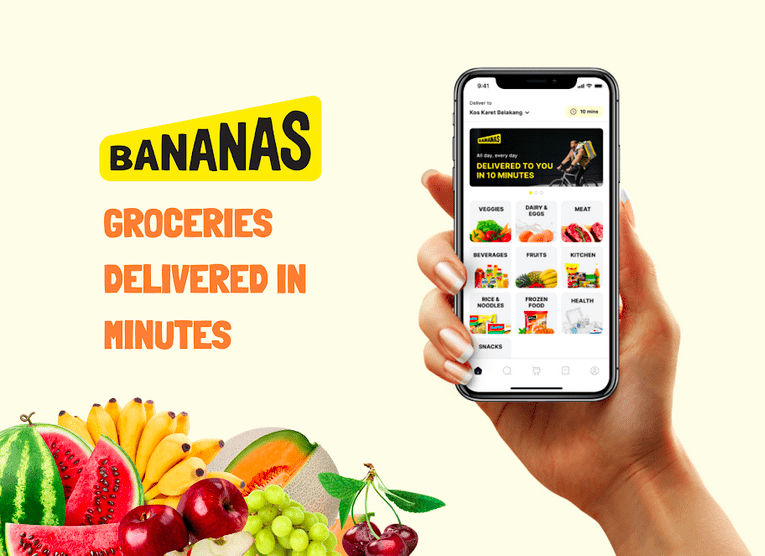AsiaTechDaily – Asia's Leading Tech and Startup Media Platform

Bananas secures $1m to speedup grocery delivery in Indonesia
Bananas, an Indonesian rapid commerce startup, has raised $1 million in seed funding that will fuel its goal of speeding up the grocery delivery in Indonesia.
The funding round was led East Ventures and backed SMDV, ARISE, MDI Ventures, and a few angel investors.
Bananas was also selected into the prestigious YCombinator Winter 2022 cohort, which has a 2% acceptance rate among software entrepreneurs from all around the world, making Y Combinator one of Bananas’ investors with their new $500,000 investment. As a result, Bananas was able to collect a total of $1.5 million in seed capital.
Mario Gaw, Founder and CEO of Bananas, said they are glad to receive this round of funding, where it will accelerate their mission to revolutionize the grocery shopping experience in the market.
“Bananas was established during the pandemic era, when we realized the needs of customers of top quality grocery items, speed, and convenience during these difficult times,” Gaw said in a statement.
Founded in late 2021, Bananas intends to bridge the market with the future of grocery shopping. Through the Bananas mobile application, customers can shop for their desired grocery item, pay, and expect delivery within 10 minutes on average. Bananas has developed tech-enabled micro-hubs, dubbed “dark shops,” near high-density residential areas to distribute food in near-instantaneous fashion.
Kristian Sinaulan, Bananas’ Founder and CTO, believes that their software solution will make grocery shopping easier and less stressful, allowing them to spend more time with their loved ones.
The investment would let Bananas break into the multibillion-dollar e-grocery business in Indonesia, which is expected to reach $170 million by 2022.
The money will be used to hire more people, mostly to support the company’s operations, which include everything from product development to dark storefronts, inventory, and customer service.
Bananas plans to open at least 50 dark stores in Indonesia in the near future, primarily in Jakarta and other tier-1 cities.





